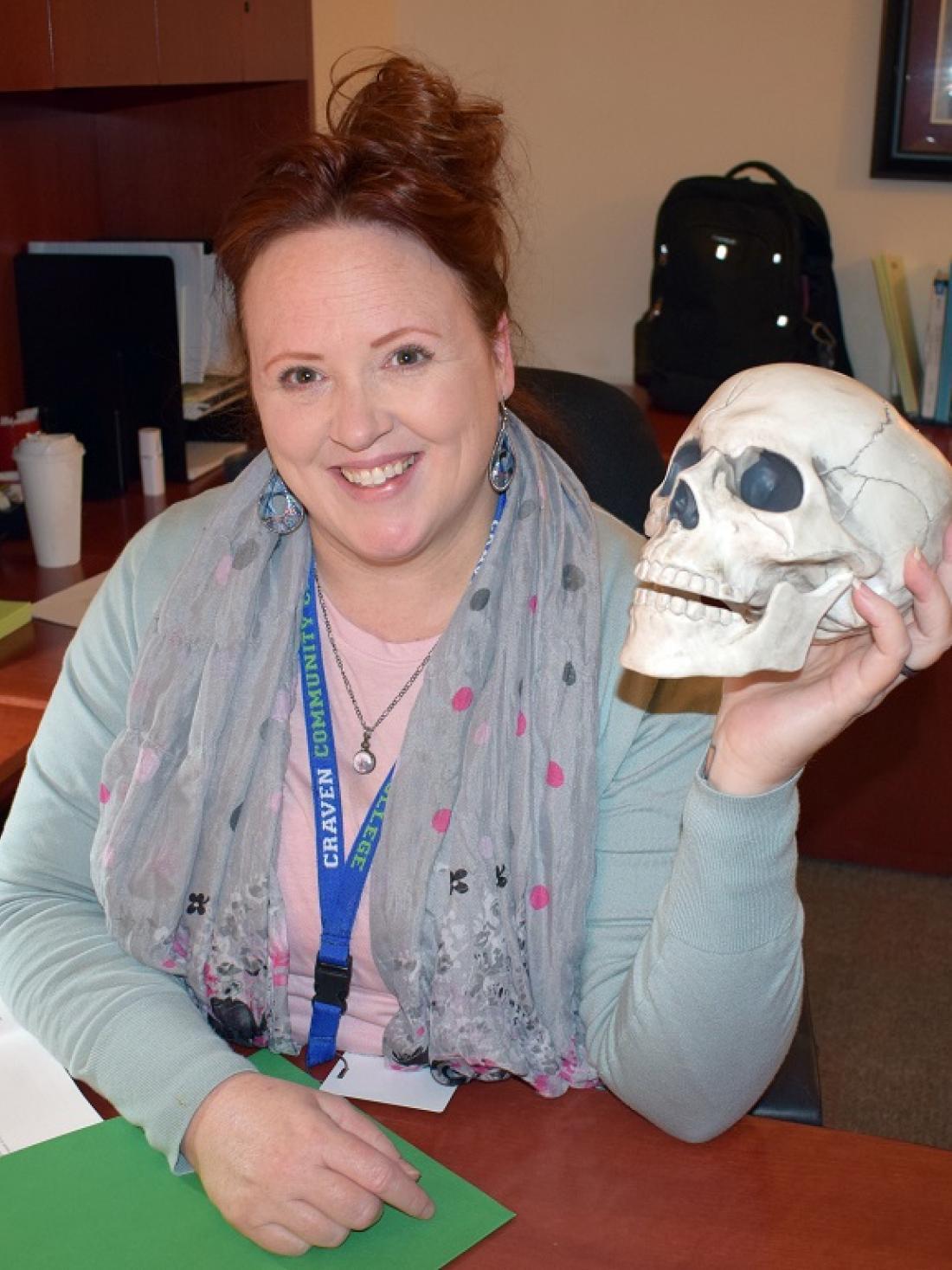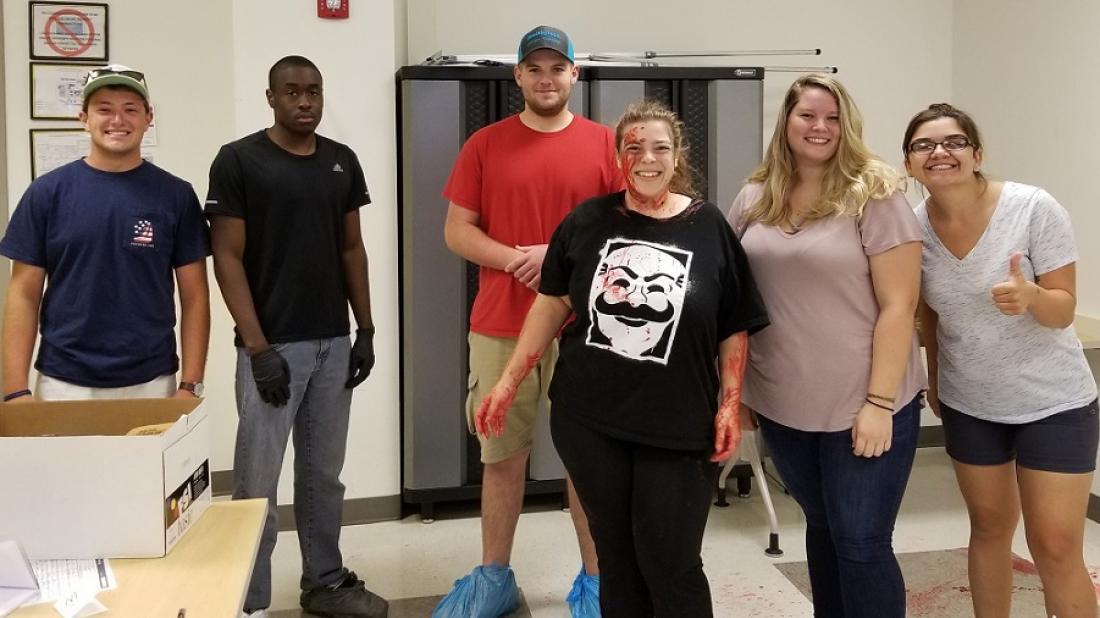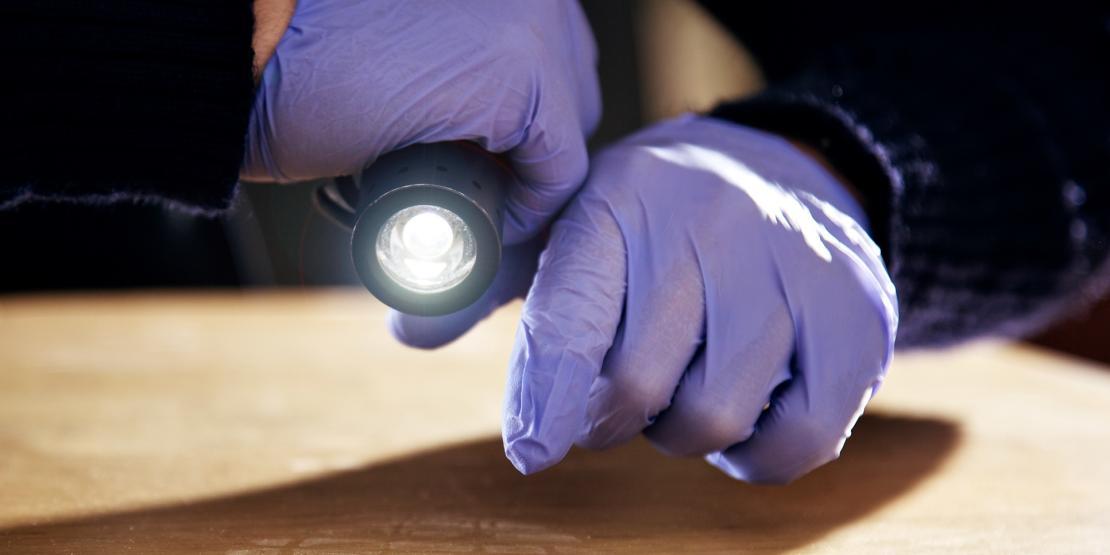By Holly Desrosier
Veteran law enforcement officer LauraAnn Avery has taken the helm of Craven Community College’s (Craven CC) award-winning Criminal Justice program. Under her leadership, the program continues to be ranked as one of the nation’s top online Associate in Criminal Justice programs, which can be completed in seated classes, online or a combination of the two.
“Criminal justice has always pulled at me,” she said. “I distinctly remember the first class and we started talking about constitutional law, arrest, search and seizure. And you go at night, so it’s five hours of intense information. I found it absolutely fascinating. It amazed me and never left.”

With an extensive law enforcement background, Avery’s expertise in the field and her witty, broad-minded personality have certainly been factors in the program’s latest successes. She had worked in law enforcement her entire career and not only had firsthand knowledge of all the material covered in the program, but also a passion for it. She went through the Basic Law Enforcement Training (BLET) program at Carteret Community College and was immediately taken with it.
She started off working as a police officer in Atlantic Beach, then transitioned to New Bern. In 2007, she became a detective with the New Bern Police Department and experienced extreme highs and lows: unbreakable bonds with colleagues, contrasted by cases so harrowing they will always stick with her. One such instance took place in 2014, when her law enforcement partner, Alex Thalmann, was killed on the job at age 22. She retired two years later and was traveling abroad when she got a request from her former lieutenant and then-River Bend Police Chief Ryland Matthews to help train detectives for the River Bend Police Department.
Avery returned in 2018 and trained the detectives for six months, and right when she was about to go on another trip, she was notified that Chief Matthews had passed away suddenly and the department was short three officers. She agreed to help full time until they were back on their feet, then pursued her teaching career.
She first contacted Craven CC in the spring of 2018 to inquire about an opening for Criminal Justice instructors. While speaking with the program director, Avery was asked about her long-term goals.
“So I said, ‘Well, I want your job, but I’ll wait for you to be finished with it first,’” she jokingly recalled.
She began as a part-time instructor that August and was right at home in the classroom after having experienced much of the material that the curriculum covered. She also decided to pursue her interest in the medical field.
“I’d looked at the programs over a year for phlebotomy and EKG,” said Avery. “I’m the only woman in my family that did not go into nursing or the medical field in some way, shape or form. So I literally flipped the coin and landed on the EKG.”

She graduated from the Cardio and EKG Technician program at Craven CC and continued to teach part-time while working as a full-time EKG technician at CarolinaEast Medical Center. She became a full-time instructor and program coordinator in August after the Criminal Justice program director took another job. Avery taught five classes last semester: Criminal Law, Terrorism, Victimology, Criminalistics and Civil Liability, and she is pursuing her master’s degree in sociology, a subject that is deeply connected to various aspects of criminal justice.
The Criminal Justice program is designed to provide students with knowledge of the criminal justice systems and operations. Program study focuses on local, state and federal law enforcement, as well as judicial processes, corrections, security services and the criminal justice system’s role within society. Emphasis is placed on criminal justice systems, criminology, juvenile justice, criminal and constitutional law, investigative principles, ethics and community relations. Additional study may include issues and concepts of government, counseling, communications, computers and technology.
Various degree, diploma and certificate options are available, depending on whether students want to develop skills for a new career or strengthen them for a current one. Degree and diploma career tracks include Criminal Justice Technology, Law Enforcement and Corrections, while certificates include Criminal Justice Technology, Correctional, Homeland Security/Terrorism, Law Enforcement Management and College/BLET Prep.
Successful graduates of this program may find employment opportunities in a variety of positions, including Police Officer, Deputy Sheriff, County Detention Officer, State Trooper, Intensive Probation/Parole Surveillance Officer, Correctional Officer, Forensic Scientist, Victim Advocate, Social Worker and Loss Prevention Specialist.
Avery thoroughly enjoys being an instructor, but she especially loves the hands-on scenarios she gets to set up for her students when studying forensics. They study a number of things, including how to read blood spatter and stains, use fingerprint powder and understand maggots and their lifecycle. In one of her first classes, she and a friend turned a classroom into a crime scene as a lab exam for her students. Her friend then played the victim while students worked the scene.
“My friend laid on the floor, and I put evidence around her and put some spatter around her,” said Avery. “That lab is two hours long, one day a week. They had to work the crime scene from beginning to end, including photographing, identifying, putting up markers, packaging, collecting evidence, sketching the scene, etc.”
She explained that COVID-19 has caused her to get especially creative with assignments, such as virtual autopsies. She also gives her students the option of writing research pages or doing a recorded presentation of the topic, enabling students of all learning styles to thrive.
Although the pandemic has forced many traditionally seated classes to an online format, the college’s Criminal Justice program already offered much of its curriculum online. In fact, Avery believes that many students had already begun selecting online options for their education before COVID-19.
Criminal Justice is one of more than 50 online degree and certificate programs the college offers, and its success has helped the college retain its position on Guide to Online Schools’ list of top 2020 Best Online Colleges in North Carolina. Earlier this year, College Consensus named it one of the nation’s top 20 Best Online Associate in Criminal Justice programs for 2020. Craven CC was selected from community colleges across the nation offering fully online Criminal Justice degree programs, with the criteria of being a fully accredited institution and recognized for impact on student lives and careers.
“The college is constantly going through the program, making sure that what we offer is consistent and reflects what is going on in society,” said Avery. “We offer not just classes that are going to get you through to your degree but things that are applicable if you choose not to go into criminal justice.”
The program has also been verified to be transferable to the state’s 16 state-supported colleges, as well as a few private colleges. That means all credits students earn in Craven CC’s Criminal Justice program will count toward a degree at one of those four-year universities if students wish to pursue an advanced degree.
“We have a proven success rate,” added Avery. “I think that we have a process that works. We have a program that is set up so perfectly that they can start their two years here locally, and they can move on. It’s more cost effective to do your first two years here, and we offer the exact same concepts that they would be getting at a four-year level.”
For more information about the program, contact Avery at 252-638-7251 or madorel@cravencc.edu.
This article was originally published in the New Bern Sun Journal on November 25, 2020.
